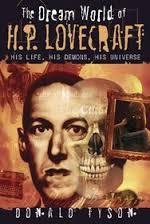Lawrence R. Spencer's Blog, page 467
February 15, 2016
EGO vs PRIDE
ego or egō (first person, nominative, plural nos) I ; first person singular personal pronoun, nominative case
EGOISM:
The tendency to think selfishly with exclusive self-interest in mind.
(ethics) The belief that moral behavior should be directed toward one’s self-interest only.
(nonstandard, by confusion of the similar words) egotism.
PRIDE:
Pride is a high sense of the worth of one’s self and one’s own, or a pleasure taken in the contemplation of these things.
(NOTE: In Christianity, the word “pride” is used negatively, as a “deadly sin”. In other words, God is very jealous and vindictive and is the ONLY being that can exibit pride. Therefore, all of the rest of you ignorant slaves must bow down and worship ME, and ONLY ME!!! (If you do not, I (god) will strike you down with a bolt of lightning!!!) )
Aristotle identified pride (megalopsuchia, variously translated as proper pride, greatness of soul and magnanimity)as the crown of the virtues, distinguishing it from vanity, temperance, and humility, thus:
“Now the man is thought to be proud who thinks himself worthy of great things, being worthy of them; for he who does so beyond his deserts is a fool, but no virtuous man is foolish or silly. The proud man, then, is the man we have described. For he who is worthy of little and thinks himself worthy of little is temperate, but not proud; for pride implies greatness, as beauty implies a goodsized body, and little people may be neat and well-proportioned but cannot be beautiful. Pride, then, seems to be a sort of crown of the virtues; for it makes them more powerful, and it is not found without them. Therefore it is hard to be truly proud; for it is impossible without nobility and goodness of character.”
ETHICAL EGOISM:
Ethical egoism can be broadly divided into three categories: individual, personal, and universal. An individual ethical egoist would hold that all people should do whatever benefits “my” (the individual) self-interest; a personal ethical egoist would hold that he or she should act in his or her self-interest, but would make no claims about what anyone else ought to do; a universal ethical egoist would argue that everyone should act in ways that are in their self-interest.
Philosopher Friedrich Nietzsche suggested that egoistic or “life-affirming” behavior stimulates jealousy or “resentment” in others, and that this is the psychological motive for the altruism in Christianity. Sociologist Helmut Schoeck similarly considered envy the motive of collective efforts by society to reduce the disproportionate gains of successful individuals through moral or legal constraints, with altruism being primary among these. In addition, Nietzsche (in Beyond Good and Evil) and Alasdair MacIntyre (in After Virtue) have pointed out that the ancient Greeks did not associate morality with altruism in the way that post-Christian Western civilization has done. Aristotle‘s view is that we have duties to ourselves as well as to other people (e.g. friends) and to the polis as a whole. The same is true for Thomas Aquinas, Christian Wolff and Immanuel Kant, who claim that there are duties to ourselves as Aristotle did, although it has been argued that, for Aristotle, the duty to one’s self is primary.
Ethical egoism has been alleged as the basis for immorality. Egoism has also been alleged as being outside the scope of moral philosophy. Thomas Jefferson writes in an 1814 letter to Thomas Law: “Self-interest, or rather self-love, or egoism, has been more plausibly substituted as the basis of morality. But I consider our relations with others as constituting the boundaries of morality. With ourselves, we stand on the ground of identity, not of relation, which last, requiring two subjects, excludes self-love confined to a single one. To ourselves, in strict language, we can owe no duties, obligation requiring also two parties. Self-love, therefore, is no part of morality. Indeed, it is exactly its counterpart.”
Definition Sources: Wikipedia.org
Originally posted 2014-07-02 21:32:38. Republished by Blog Post Promoter
February 14, 2016
A NOTE FROM SANTA
February 13, 2016
MIRACLE PRODUCTS FROM TRUSTOCORP
February 12, 2016
PRINCESS BRIDE BOARD GAME
The 24th Anniversary of the release of the film “Princess Bride” has been memorialised in a board game. As you wish!
If haven’t seen the film,here is a clip from the classic Sword Fight scene: http://youtu.be/k7zvffHu_wo
(CLICK IMAGE TO ENLARGE)
Originally posted 2011-09-26 10:16:13. Republished by Blog Post Promoter
February 11, 2016
ANOTHER ANTI-GRAVITY VIDEO: SPRING!
It’s fun to disagree with reality! 
BenJammin – Spring from Till Nowak on Vimeo.
Nach intensiven Training ist es BenJammin gelungen, die Schwerkraft zu besiegen! Die Single “SPRING” ist am 21.08.2009 erhältlich. Wir freuen uns!!
Originally posted 2013-02-16 23:34:10. Republished by Blog Post Promoter
February 10, 2016
REAL TO YOU

Originally posted 2011-12-08 18:22:52. Republished by Blog Post Promoter
February 9, 2016
A LETTER FROM MR. HOLMES TO H.P. LOVECRAFT
[image error]“It is my observation that immortality is a state of spiritual existence that is native to all beings, regardless of whether or not that being currently inhabits a body. A body is a only a temporary vehicle through which spirits may tour the physical universe and enjoy the sensations and adventures provided therein. Factually, the spirit enters into a body, animates the body, and departs from the body when it becomes injured, diseased or spent.
Most beings will forget about that body when it is gone, and will also forget the identity and activities of that body – out of sight, out of mind. However, I have discovered that many persons do not lose awareness of themselves between the lives of bodies they have inhabited. Through mental discipline one may overcome the common affliction of Western men to deny and forget the spiritual essence of themselves.
This forgetfulness is a disease of the soul created and maintained by stupid brutes who are compelled to dominate and control their fellow beings. They have long since lost themselves, and seek only to ensure that their disability is inflicted upon everyone. Their greatest fear is that another being may inflict pain upon them, just as they desire to inflict pain upon others.
Immortality is not sustained by a desire for revenge against the real or imagined wrongs which have been, or may be, caused by others. Immortality is realized through loving oneself and loving others as you love yourself. The possession of a body is not a factor in love or immortality.
I have learned that certain Eastern sages, and their devote disciples, have learned methods of mental and spiritual discipline that enable them to identify themselves spiritually, and maintain a constant awareness of that identity from the lifetime of one body to the next and to the next, ad infinitum. Ultimately, one may choose to inhabit a body, or not, at will.

Existence as a disembodied spiritual being is sometimes observed and acknowledged by people. They are called ghosts, or angels, or demons, or saints or poltergeists, or gods – depending upon the disposition and behavior of these spirits toward men.
Therefore, the necessity of maintaining the health or longevity of a physical body is not only an aberration of the concept of immortality, it is entirely unnecessary! Moreover, this chemical trick obviates the existence of the immortal spiritual entity. Personal spiritual immortality is self-evident.
However, the inability or unwillingness of Western priests – in a sanctuary or in a laboratory – to observe, explore and employ the potential ability of the individual spirit is nothing less than a denial of Creation itself. The animating intelligence of the universe, whether it is manifested as the life force of an amoeba or the as the raging storms of Zeus, is the primal force of all creation, volition and existence.
Let us not waste any further time or energy in the study of religion or alchemy. These are only small attempts to control manifestations of the immortal spirit. Individually we are each a spirit. Collectively, we coexist in several universes, both physical and ethereal. Universally, we share a common source. In every aspect and manifestation the spirit has always been and forever shall be. Eternity is not subject to time, past, present or future: it is no time. Likewise, the spirit is a no thing, which creates and animates all things.
Thank you very much for your confidences in consulting with me upon the subject of the letter from “Count Antoine”. I am pleased to be at your service, if indeed you discover anything of value in this reply to you.
If you have an occasion to visit England I would be delighted to entertain you as a guest at my modest lodgings near Eastbourne. The country in this region is quite pleasant, except in winter, and there are several lovely beaches upon which one may enjoy the nearby ocean.
To the end, and in new beginnings, I shall remain yours faithfully,
Sherlock Sherrinford Holmes, Sussex Downs, England“
Excerpt of a letter from Sherlock Holmes to H.P. Lovecraft, from the book SHERLOCK HOLMES: MY LIFE, by Lawrence R. Spencer
Originally posted 2011-05-02 23:54:01. Republished by Blog Post Promoter
February 7, 2016
WATER DROP ART
Corrie White “freezes” drops of water with high-speed photography to capture amazing illusions:

Originally posted 2010-12-10 13:34:46. Republished by Blog Post Promoter
February 6, 2016
KNOWING MOONSHINE
Henry Louis “H. L.” Mencken (September 12, 1880 – January 29, 1956), was an American journalist, essayist, magazine editor, satirist, critic of American life and culture, and a scholar of American English.Mencken is known for writing The American Language, a multi-volume study of how the English language is spoken in the United States, and for his satirical reporting on the Scopes trial, which he dubbed the “Monkey Trial”. He commented widely on the social scene, literature, music, prominent politicians, pseudo-experts, the temperance movement, and uplifters. A keen cheerleader of scientific progress, he was very skeptical of economic theories and particularly critical of anti-intellectualism, bigotry, populism, Fundamentalist Christianity, creationism, organized religion, and the existence of God.
In addition to his literary accomplishments, Mencken was known for his controversial ideas. A frank admirer of Nietzsche, he was not a proponent of representative democracy, which he believed was a system in which inferior men dominated their superiors. During and after World War One, he was sympathetic to the Germans, and was very distrustful of British “propaganda”. However, he overcame his inclination to embrace all things Bavarian, referring to Hitler and his followers as “ignorant thugs”.
Originally posted 2012-08-07 13:03:05. Republished by Blog Post Promoter














